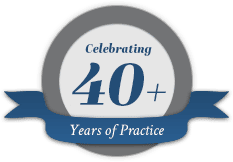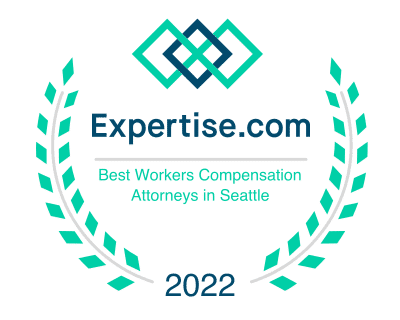Words are important. If you know what they mean and how to use them, you will get people to pay attention, and you will gain the respect of those you are trying to influence.
Attending Physician
This is the doctor who oversees and coordinates your medical care. This doctor is expected to treat you, send you to specialists, prescribe medication and write reports for you.
Adjuster
The adjuster, also know as insurance adjuster, is the person who evaluates your claim for damages. They are employed by the insurance company and they work to settle your case for less than it’s worth. Sometimes they just don’t see all the problems. You can hire your own adjuster if it becomes necessary.
Administrative Deadline
The date or time before which something must be done. It is a time limitation set by law or regulation. For example, in an auto accident case the law says you should file a Collision Report Form within 4 days of an accident if one was not filed by a police officer. Your insurance policy outlines when you must report your accident to your insurance company. Read your policy carefully so you don’t miss their deadline.
Causation
This is the link between the accident and the injuries. A causal connection is required to prove a claim. A method of proving causation is the “but for” test. For example, “but for” the auto accident, would the plaintiff’s back be hurting? Yes, and causation is established. No, (if the back was going to hurt anyway) then causation is not established for the back injury.
Civil Cases
Civil cases are different than criminal cases. Civil cases are disputes between persons. Civil cases can be viewed as an injured plaintiff bringing a civil lawsuit against the responsible defendant who caused the injuries. The standard of proof in civil cases is often “more likely than not”. Successful civil cases usually result in an award of money.
Claim
A claim is a declaration or demand that something is owing. “Claim” is sometimes used interchangeably with “case”. When you are injured by an at fault driver you have a claim. A claimant, also know as a plaintiff, is a person who has a claim.
Collision Coverage
A type of insurance which covers damage to your own vehicle, subject to a deductible. If you have collision and the other driver has liability, you can choose to repair your car with your collision coverage and let your insurance company fight it out with the liability insurer. Read your policy for details.
Comprehensive Coverage
A type of insurance which covers acts of god such as windstorms, floods, earthquakes, wildfire, and contact with an animal or bird. Comprehensive coverage also takes care of claims for theft and vandalism and may pay an allotment for items stolen from inside your vehicle like clothes, valuables, audio systems or other property damage. Comprehensive claims are subject to a deductible and the provisions of your particular policy.
Criminal Cases
Criminal are different than civil cases. Criminal cases are about crimes and a claim by the state that a law has been violated. Criminal cases can be viewed as a prosecutor charging a criminal defendant with a crime. The standard of proof in most criminal cases is “beyond a reasonable doubt”.
Damages
Damages are a measure of a person’s loss. They are often further classified by insurance companies as bodily injury (injuries to your person), or property damage (damage to your car or other property).
Deductible
The dollar amount which the policy holder must pay or absorb before their own insurance coverage will be effective.
Defendant
In the civil litigation process, the defendant is usually the bad actor who has caused an accident or injury and is being sued by the plaintiff. In the criminal justice system, the defendant is the bad actor who is accused of a crime.
Fault
Fault is the responsibility for an accident. The at fault person is the one who is to blame and the one responsible to pay damages. Fault can be attributed to more than one person. In Washington State we have comparative fault. This allows for the use of a mathematical formula to determine who pays how much.
For example, in an unmarked intersection accident where driver “x” is speeding and driver “y” is not paying attention. A judge or jury may compare fault and for example, find “x” 70% at fault and “y” 30% at fault.
“x” would then owe “y” 70% of “y’s” proven damages. “Y “would owe “x” 30% of “x’s” proven damages.
Guardian Ad Litem
A person appointed by a judge to protect the litigation interests of a person who cannot take care of themselves.
For example, a person with a catastrophic head injury may not be able to understand what is going on in their case and they should have guardian ad litem appointed to help them.
Injury
An injury is a loss incurred by a person in an accident. Injuries are often further classified as minor, soft tissue, serious, catastrophic, and personal, depending on how they are viewed by the person speaking.
Insurance Coverage
Insurance policies have different types of coverage. Insurance coverage includes liability, UIM, comprehensive, collision, medical payment, and personal injury protection. Each of these types of coverage are explained in some detail on this webpage. For precise information, read your insurance policy.
Legal Advice
Legal advice is a lawyer looking at your facts and your situation then applying those facts to the law. Legal advice is an opinion relevant to your specific situation. It is an interactive process. When you have a problem and are looking for a way forward, legal advice can be very helpful. Legal advice is different than legal information.
Legal Information
Getting legal information is easier than it used to be. Online access to various websites has made legal information quickly available. Websites, blogs, statutes, and court decisions can be as close as a google click away. Legal information is about the law. Do you want information about personal injury or workers’ compensation? Check out this website; this website is legal information.
Liability
Liability is fault. A driver may be liable for a number of reasons including being under the influence, reckless, inattentive, speeding, sleepy, careless, and not following the rules of the road.
A Liable driver is at fault and may have to pay damages for the harm they have caused.
Liability Insurance
A type of insurance coverage available to pay for the damages caused by an at fault driver. Liability insurance is mandatory for drivers in the State of Washington. If somebody runs their car into you, then you hope they have liability insurance. Liability coverage limits are typically set out in a split format, such as 100,000/300,000/50,000. This translates to a limit of $100,000 per person, a limit of $300,00 total coverage for all individuals, and a limit of $50,000 for property damage to other vehicles. Read your policy and see your declaration sheet for details of your liability coverage. You may have to file a lawsuit to see the details of the other driver’s liability coverage.
Litigation
The process of handling a tort, such as an auto accident, through the court system. Litigation consists of various maters, to include summons, complaint, answer, motions, discovery, interrogatories, depositions, day in court, and judgment. Also known as a lawsuit or suing someone.
Medical Payment Coverage
A type of insurance coverage which pays medical expenses for the people in your car, regardless of fault.
Mitigation of Damages
The process of limiting the seriousness of a loss. A claimant who has a loss has a duty to mitigate. For example, if a broken arm is the damage, then the mitigation of damage is seeing the doctor and getting a cast put on so the arm will heal properly.
No Fault
An insurance system in effect in some states, but not in Washington. In Washington an injured person needs to show fault to receive money for their losses.
Personal Injury
A personal injury is a loss to you caused by the negligence of another person. An auto accident that causes injuries is a personal injury. A Good Personal Injury Case has both:
- A negligent person who is liable because they are at fault for the accident and
- Insurance or assets so they can pay for the damages they have caused.
Personal Injury Protection (PIP)
PIP is a type of insurance coverage which protects the insured for some of their own losses.
A typical PIP policy covers wage loss and medical bills up to the stated amount of coverage.
Plaintiff
The plaintiff is the individual or entity which starts a lawsuit. A plaintiff sues a defendant.
Settlement
A settlement is the ending of a claim for damages with the use of an agreement. It often involves the offer and acceptance of a certain dollar amount in exchange for a release of claims and giving up the right to sue. A case can settle before, during or after litigation.
Statue of Limitations (SOL)
Timing is important. The time deadline within which a lawsuit must be filed or the right to file the lawsuit will be lost is called the statute of limitations. There are different SOL’s for different torts. The SOL for negligence in Washington State is generally 3 years. For intentional injury it is 1 or 2 years. For UIM claim the SOL is by contract and sometimes as long as 6 years, but it can be shorter. Know what claims and time deadlines you are dealing with and don’t miss a deadline. Consult a lawyer and don’t wait.
Subrogation
The right of an insurance company to recover money they have paid is called subrogation. For example, if your accident related medical bills are paid by your health insurance and you later recover money from the tortfeasor’s insurance company, then your health insurer probably has a contractual right to subrogate, and thus get their money back from out of your recovery. You probably don’t owe them all the money they have paid. They probably should have their subrogation demand reduced because of the work you or your attorney did to collect this money for them.
Third Party Claims
A third-party claim is an additional claim against another person or entity. For example, a worker hurt in an auto accident while on the job has a Labor and Industries (L&I) claim for workers compensation benefits, and a third-party claim against the at fault driver who caused the accident.
Tort
A tort is a civil wrong against a person or company. It is different than a crime. A crime is a wrong against the people of the state. A negligent driver who caused an accident commits a tort. Someone who violates drug laws commits a crime. A drunk driver who causes an accident commits both a tort and a crime.
UM/UIM Insurance Coverage
Uninsured (UM)/Underinsured motorist (UIM). These are both a status and a type of insurance. As a status, a person without insurance is an uninsured motorist. A person without enough insurance coverage is underinsured.
As insurance uninsured/underinsured motorist coverage is a type of insurance you buy to cover yourself in case the responsible party has little or no insurance. This is good insurance coverage to have.
UM/UIM Claims
Consider making a claim under your won UM/UIM insurance policy when the at fault driver is uninsured or underinsured. Don’t hold back and worry about claiming against your own company. You bought the UIM insurance so you would have insurance protection for this exact situation. Since they are your own company, expect that they will treat you well. If they don’t, talk to a lawyer about the UM/UIM claim and an additional insurance bad faith or IFCA claim you could have if your insurance company treats you unfairly.
Wage Loss
Money not made in your job while you are off work because of an event, often an accident.
Workers Compensation
Job injury coverage and benefits for the injured worker. Also known as Labor and Industries (L&I). See L&I Benefits for more details than you thought possible









